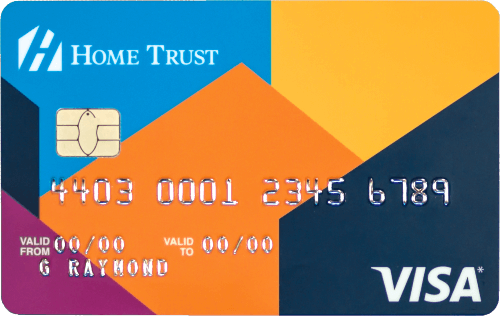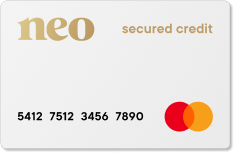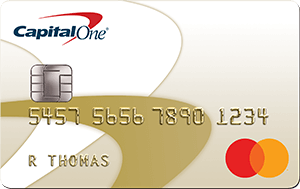The best secured credit cards in Canada for 2024
A secured card can be lifesaver for those with bad credit, newcomers and young Canadians who need to build up their credit.
A secured credit card is a unique financial tool that requires a cash deposit as collateral, so the issuer is protected in case the cardholder fails to make payments. If you miss a payment, the bank can use the deposit to pay off the amount owing. Because this reduces the financial risk to the credit card provider, it’s much easier to get approved for a secured card than it is a traditional non-secured card. Here’s a look at some of the best secured credit cards in Canada.
| Best credit card by category | Why we love it |
|---|---|
| Best overall Home Trust Secured Visa | Choose between fee and no-fee options |
| Best for rewards Secured Neo Mastercard | Earn from 0.5% to 5% on select purchases |
| Best for insurance Capital One Secured Mastercard | Get price protection, car rental insurance and some travel benefits |
Advertisement
Best overall secured credit card
At a glance: The Home Trust Secured Visa is an incredibly user-friendly card with attractive flexibility. Applicants have the choice of going with an interest rate of 19.99% with no annual fee or opting for a low interest rate of 14.90% and paying a $59 annual fee. Because Home Trust reports your payments to Canada’s credit bureaus, you can establish a credit file and build up your score. All you really need to apply is a minimum of $500 in a Canadian bank account. Unfortunately, the card is not available if you are currently in bankruptcy or live in Quebec. With this card you can deposit anywhere from $500 up to $10,000, and your chosen amount becomes your limit.
Home Trust Secured Visa
Annual fee: $0
Rewards: None (designed for people looking to rebuild credit)
Welcome offer: None
Card details
| Interest rates | 19.99% on purchases and 19.99% on cash advances |
| Income required | None specified |
| Credit score | 300 or higher |
Pros
- With two interest rate and annual-fee options to choose from, you can pick the one that works best for you.
- Your deposit is protected by the Canada Deposit Insurance Corporation (CDIC).
- Home Trust reports to both Equifax and TransUnion—Canada’s two credit bureaus.
- The foreign exchange fee of 2% is low compared to most cards, which typically charge 2.5%.
- You can deposit as much as $10,000 and use that as your credit limit.
Cons
- The minimum deposit of $500 is high, considering it can be as low as $50 with some other cards.
- The card is not available to residents of Quebec or people who are currently in bankruptcy.
- The company charges a $12 fee if your card is inactive for a year and $29 if you exceed your credit limit.
Advertisement
Best secured card for rewards
At a glance: Neo is one of the few secured cards that offers some appealing extras like rewards, a welcome offer and a low minimum deposit. This card lets you deposit as little as $50, and you can earn an average of 5% cash back for purchases you make at select partners. Neo even promises guaranteed approval as long as you’re a Canadian resident and are the age of majority in your province or territory.
Secured Neo Mastercard
Annual fee: $60
Rewards: A minimum of 0.5% cash back and an average of 5% cash back on purchases at partners
Welcome offer: earn $25 cash back.
Card details
| Interest rates | 19.99% on purchases (19.99% to 24.99% for Quebec residents) and 22.99% on cash advances (22.99% to 25.99% for Quebec residents) |
| Income required | None |
| Credit score | 690 or higher |
Pros
- The Secured Neo Mastercard is one of the few secured cards to offer rewards.
- At $50, the minimum security deposit is low compared to cards like the Home Trust Secured Visa, and you can still choose to deposit up to $10,000 for a higher credit limit.
- If your overall cash back falls below 0.5%, Neo will top you up.
- Neo offers a variety of different perks that you can add to your card (for a fee) such as app subscriptions, free gym classes and insurance like extended warranty or even travel insurance (depending on what perk bundle you sign up for).
Cons
- The interest rate charged for purchases varies, depending on credit profile and province. It can be as low as 19.99%, but as high as 29.99%, which is on the far end of the spectrum.
- You won’t any any rewards at retailers that aren’t Neo partners.
Best secured card for insurance
At a glance: With its secured MasterCard, Capital One guarantees you’ll be approved as long as you’re of the age of majority in your province, you don’t already have a Capital One account, and you can provide security funds of $75 or $300. This card comes with a few extra perks like extended warranty, car rental insurance and some travel benefits. Especially worth noting is that the card comes with price protection: If you buy a new item that goes on sale for a lower price within 60 days, Capital One will pay you the price difference up to $100 per item and $500 per year. This is an incredibly rare perk even among premium cards in Canada.
Capital One Guaranteed Secured Mastercard
Annual fee: $59
Rewards: None (designed for people looking to rebuild credit)
Welcome offer: None
Card details
| Interest rates | 19.80% on purchases, 21.90% on cash advances, 19.80% on balance transfers |
| Income required | None |
| Credit score | None (designed for people with bad credit) |
Pros
- With the Capital One Secured Mastercard, you’re guaranteed approval if you meet the eligibility requirements noted above.
- It’s one of the few secured cards to offer insurance coverage.
- The card comes with price protection—a rare perk, even among premium cards—extended warranty, common carrier travel accident insurance, baggage delay and travel assistance.
Cons
- Whereas the Secured Neo Mastercard has no annual fee and offers cash back, this card has an annual fee of $59 and doesn’t come with any rewards or cash back.
- The most you can deposit initially is $300, which gives you a very low credit limit compared to the other cards on this list. However, upon successful approval with Capital One, you may be able to increase your limit by depositing up to $2,500.
Advertisement
What is a secured credit card?
A secured card is a specific type of credit card that requires applicants to make a cash deposit in order to be approved. The experience of using a secured card for everyday purchases is mostly the same as a “regular” credit card, and the deposit requirement makes secured cards extremely attainable and a good option for people who want to build their credit with a credit card but don’t qualify for traditional unsecured credit cards because of bad credit or a lack of credit history.
How does a secured credit card work?
You pay a deposit upfront in order to be approved for a secured credit card. The deposit serves as collateral, so it’s easy to be approved for these cards even if you have a bad credit rating. The spending limit on your secured credit card will be one to two times the security deposit you put down. If you miss your minimum payments, then the issuer may take money from your deposit to cover what you owe, but you cannot use the deposit yourself to make payments on your card. If you decide to close your account or to upgrade to an unsecured card, then your deposit will be returned.
Other than that, the card works just like a regular unsecured credit card. You can use it to buy things online, in stores, or to cover regular monthly bill payments, such as utilities or Internet service. If you carry a balance at the end of the month, you will be charged interest at the stated rate.
Do secured credit cards build credit?
Yes. In fact, building a better credit rating is the primary value of a secured credit card. Because payment history is such an important factor in determining a credit score, this is an excellent option for people who are new to the country, have no credit or poor credit, or have recently filed for bankruptcy. It is important to remember to be as careful making your credit card payments as you would with any other loan or bill payment. Missed payments can hurt your credit rating more easily than making payments can help it.
If you make your minimum payment on time every month, it’s possible to develop good credit in as little as a year. Once that happens, you may be able to qualify for an unsecured credit card and get your deposit back. It is good practice to use your secured credit card regularly but to use it sparingly. You want to be sure you can pay off your entire balance each month to avoid paying interest.
Secured vs unsecured credit cards
Secured credit cards
- Require deposit
- Easy to get approved for (even if you have bad credit)
- Often have annual fees, or setup fees
- Don’t come with any perks or rewards
- Can have higher interest rates, but rates can vary
- Can help build credit
Unsecured credit cards
- No deposit required
- Require a moderately good credit rating
- No set up fees; many options do not have annual fees, while others do
- Can come with benefits such as travel points, cash back, travel insurance and so on
- Lower interest rate cards are available
- Can help build credit
Frequently asked questions
Each credit card provider may have different rules about increasing a credit limit, but you should be able to increase your limit as long as you provide the required deposit amount. Note that you can’t simply make an overpayment on your balance as a way to increase your limit.
Yes, secured credit cards are specifically intended to help people build or rebuild their credit. As long as you use your secured credit card responsibly by making on-time payments, the card issuer will report this positive activity to Canada’s credit bureaus. Over time, you’ll develop a credit profile and increase your score. You’ll then eventually be able to qualify for unsecured cards and more financial products with better rates.
More of the best credit cards:
- Best credit cards in Canada
- Best rewards credit cards
- Best travel credit cards
- Best cash-back credit Cards
- Best no-fee credit cards
- Best low-interest credit cards
- Best balance transfer credit cards
- Best student credit cards
What does the * mean?
Affiliate (monetized) links can sometimes result in a payment to MoneySense (owned by Ratehub Inc.), which helps our website stay free to our users. If a link has an asterisk (*) or is labelled as “Featured,” it is an affiliate link. If a link is labelled as “Sponsored,” it is a paid placement, which may or may not have an affiliate link. Our editorial content will never be influenced by these links. We are committed to looking at all available products in the market. Where a product ranks in our article, and whether or not it’s included in the first place, is never driven by compensation. For more details, read our MoneySense Monetization policy.


